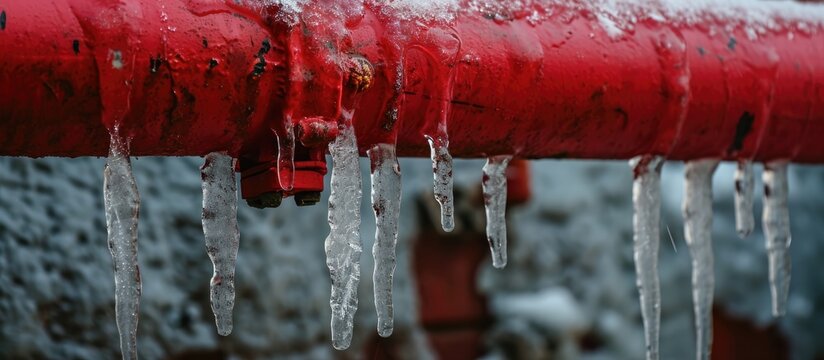Avoiding Your Pipes from Cold Weather: Top Tips
Avoiding Your Pipes from Cold Weather: Top Tips
Blog Article
This article directly below about How to Prevent Your Pipes From Freezing is really insightful. You should check it out.

Winter can ruin your pipes, especially by freezing pipes. Right here's exactly how to prevent it from taking place and what to do if it does.
Introduction
As temperature levels decrease, the danger of frozen pipes increases, potentially bring about expensive repair services and water damage. Comprehending how to prevent icy pipelines is important for property owners in chilly climates.
Understanding Icy Pipes
What causes pipelines to ice up?
Pipes freeze when exposed to temperature levels below 32 ° F (0 ° C) for prolonged periods. As water inside the pipes ices up, it increases, putting pressure on the pipeline walls and possibly triggering them to burst.
Dangers and problems
Icy pipelines can bring about water disturbances, residential property damages, and costly repairs. Ruptured pipes can flood homes and create extensive architectural damages.
Signs of Frozen Pipes
Determining icy pipelines early can prevent them from breaking.
How to recognize frozen pipes
Seek reduced water flow from faucets, uncommon odors or noises from pipes, and noticeable frost on exposed pipelines.
Prevention Tips
Shielding vulnerable pipes
Cover pipes in insulation sleeves or use heat tape to protect them from freezing temperatures. Concentrate on pipelines in unheated or external locations of the home.
Home heating strategies
Keep interior rooms effectively warmed, particularly locations with plumbing. Open cupboard doors to permit cozy air to distribute around pipes under sinks.
Securing Outdoor Pipes
Yard hoses and exterior taps
Detach and drain garden hose pipes prior to wintertime. Mount frost-proof spigots or cover exterior faucets with insulated caps.
What to Do If Your Pipelines Freeze
Immediate actions to take
If you presume icy pipes, maintain faucets available to eliminate pressure as the ice melts. Use a hairdryer or towels soaked in hot water to thaw pipes gradually.
Long-Term Solutions
Architectural adjustments
Think about rerouting pipelines away from exterior walls or unheated areas. Add added insulation to attic rooms, basements, and crawl spaces.
Updating insulation
Purchase top quality insulation for pipelines, attics, and walls. Appropriate insulation assists maintain consistent temperature levels and lowers the danger of frozen pipes.
Final thought
Preventing icy pipelines needs aggressive measures and fast responses. By recognizing the reasons, signs, and preventive measures, property owners can secure their plumbing throughout winter.
Helpful Tips to Prevent Frozen Pipes this Winter
UNDERSTANDING THE BASICS: WHY PIPES FREEZE AND WHY IT’S A PROBLEM
Water freezing inside pipes is common during the winter months, but understanding why pipes freeze, and the potential problems it can cause is crucial in preventing such incidents. This section will delve into the basics of why pipes freeze and the associated problems that may arise.
THE SCIENCE BEHIND FROZEN PIPES
When water reaches freezing temperatures, it undergoes a physical transformation and solidifies into ice. This expansion of water as it freezes is the primary reason pipes can burst. As the water inside the pipe freezes, it expands, creating immense pressure on the walls. If the pressure becomes too great, the pipe can crack or rupture, leading to leaks and water damage.
FACTORS THAT CONTRIBUTE TO PIPE FREEZING
Low Temperatures: Extremely cold weather, especially below freezing, increases the risk of pipes freezing. Uninsulated or Poorly Insulated Pipes: Pipes located in unheated areas, such as basements, crawl spaces, or attics, are more prone to freezing. Insufficient insulation or lack of insulation altogether exacerbates the problem. Exterior Wall Exposure: Pipes running along exterior walls are susceptible to freezing as they encounter colder temperatures outside. Lack of Heating or Temperature Regulation: Inadequate heating or inconsistent temperature control in your home can contribute to frozen pipes. PROBLEMS CAUSED BY FROZEN PIPES
- Pipe Bursting: As mentioned earlier, the expansion of water as it freezes can cause pipes to burst, resulting in significant water damage.
- Water Damage: When pipes burst, it can lead to flooding and water damage to your property, including walls, ceilings, flooring, and personal belongings.
- Structural Damage: Prolonged exposure to water from burst pipes can compromise the structural integrity of your home, leading to costly repairs.
- Mold and Mildew Growth: Excess moisture from water damage can create a favorable environment for mold and mildew growth, posing health risks to occupants.
- Disrupted Water Supply: Frozen pipes can also result in a complete or partial loss of water supply until the issue is resolved.
WHY CERTAIN PIPES ARE MORE PRONE TO FREEZING
- Location: Pipes located in unheated or poorly insulated areas, such as basements, crawl spaces, attics, or exterior walls, are at higher risk of freezing.
- Exterior Pipes: Outdoor pipes, such as those used for irrigation or exposed plumbing, are particularly vulnerable to freezing as they are directly exposed to the elements.
- Supply Lines: Pipes that carry water from the main water supply into your home, including the main water line, are critical to protect as freezing in these lines can affect your entire plumbing system.
- Underground Pipes: Pipes buried underground, such as those connected to sprinkler systems or outdoor faucets, can be susceptible to freezing if not properly insulated.
https://busybusy.com/blog/helpful-tips-to-prevent-frozen-pipes-this-winter/

I hope you enjoyed our topic on Prevent Frozen Pipes . Thanks for finding the time to read through our article post. If you enjoyed our page plz consider to share it. I praise you for your time. Revisit us soon.
Set An Appointment Report this page